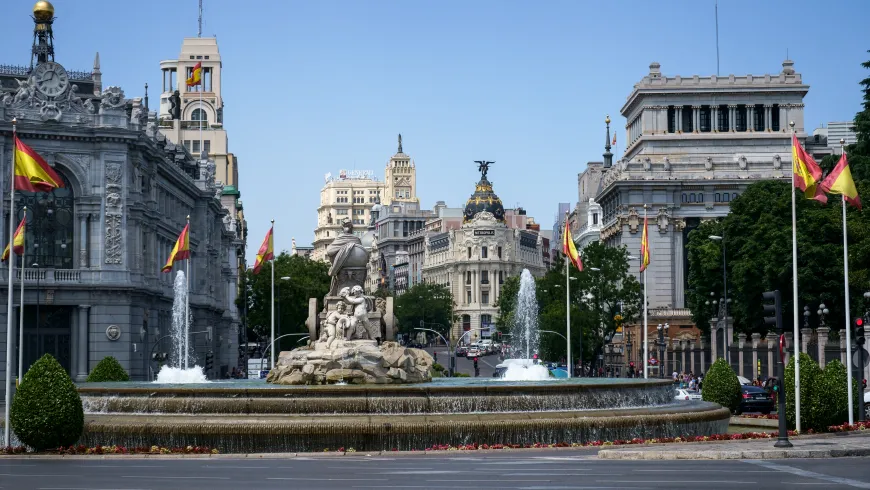
The Study Abroad in Spain program offers an array of areas of study suited for every student, including courses in Hispanic Studies, Business, Translation, Education, and Spanish for specific purposes.
In addition to all these disciplines, students may participate in a unique Internship Program and spend a full semester in a company or an organization of their choice.
All syllabi in this section are tentative, therefore, they may be subject to change.
Hispanic Studies

The course is aimed at students who wish to enhance their communication skills in Spanish. To achieve this goal, new grammatical structures will be introduced, and others that have already been acquired by the student will be strengthened. This course requires students to have passed level B (intermediate level according to the Common European Framework of Reference for Languages) in order for them to be able to learn about the contents explained in class with no difficulty. The contents of the course will include four skills: speaking, writing, listening and reading comprehension. Students will therefore acquire greater confidence and independence, enabling them to express themselves in Spanish fluently. Cultural and social aspects will also have great presence and they will be integrated into the communication process.
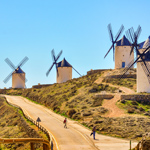
The course is aimed at students who wish to learn about the life and work of one of our most renowned writers, Miguel de Cervantes. Students will learn about Cervantes’ most relevant works, in addition to his literary influences and characteristics within the context of the Spanish Golden Age. The course will include a selection of readings from his different works, with particular emphasis on his famous Don Quixote.

This course provides an overview of the Spanish media (print, advertising, film, radio, television, and social networks) as well as the vision of Spain today that is offered by these media outlets. While the classroom approach tries to be generalist, more emphasis is placed on the media, and individual and current work with specific features that are now part of the history of Spanish communication.

The aim of this course is to bring students closer to the life and work of our most influential authors of the 20th and 21st centuries. We will study the essential stylistic features of each author and we will situate them in a particular period or movement. The aim is to integrate different art forms into the most recent historical development, in order for students to identify them in the literary texts of each period.

Cinema is one of the most popular artistic manifestations due to its expressive power and narrative capacity. Film production allows us to gain knowledge about the reality of a country from two perspectives: as a historical document and an aesthetic expression. In this course students will learn about the Spanish film discourse based on the analysis of seven important films in the history of the Spanish cinema. On the other hand, the course aims to make a journey through the history of Spain, from the Civil War to the present, taking as reference film productions on this period. The Spanish film production will be studied from a multidisciplinary perspective in order to analyze the most relevant historical periods of contemporary Spain. In addition, students will have the opportunity to acquire specialized language on film and historiography. It will allow them to improve their oral and written expression in Spanish, as well as to appreciate cinema as a form of artistic and cultural expression.
NOTE: This course includes different cultural topics (such as bullfighting, terrorism or nudity) that may hurt the student's sensibilities.
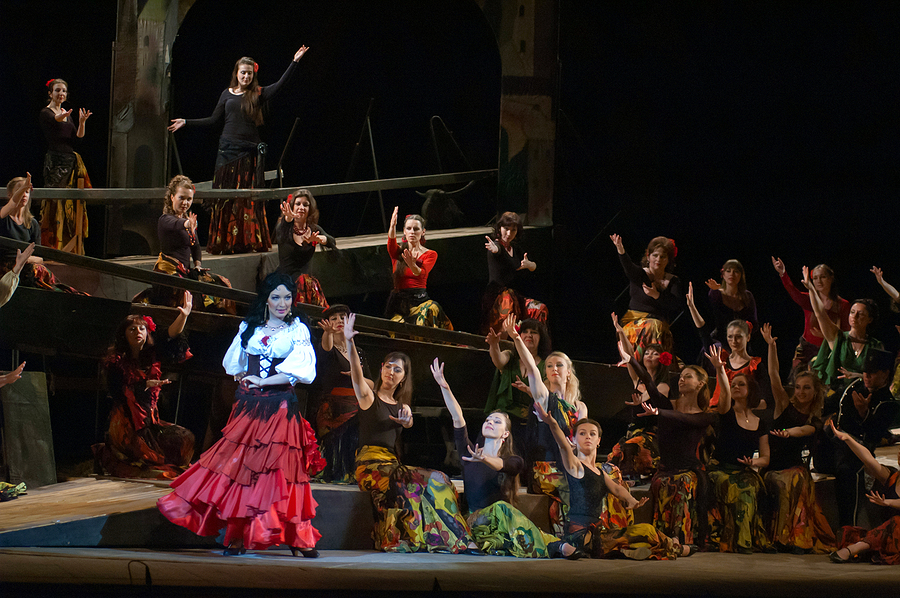
Through the study of contemporary drama and its critical reception, we will study the historical situation of Spain today. The objective of this course is that the student learns to appreciate literature in Spanish and to know history through it. The aim is to offer a vision of the evolution of Spanish identities and cultures in Spanish in the context of the current situation of the country.

Flamenco, recognized as an Intangible Cultural Heritage of Humanity by UNESCO in 2010, is one of Spain's most iconic artistic expressions and a highly valued cultural symbol on an international level. Moreover, it has become an essential element of Spanish identity. This unique art form blends a rich variety of disciplines and cultural traditions, from music and dance to attire and musical instruments, making it an exceptionally complex and diverse musical expression.
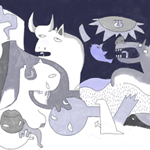
The course provides an overview of Spanish art history from the early days (Cave of Altamira) to the avant-garde of the twentieth century. While the course offers a general panoramic overview, more emphasis is placed on the great masters of painting such as El Greco, Velázquez, Goya and Picasso, whose skills and abilities set the course of pictorial art by turning Spanish painting into the soul of modern art.
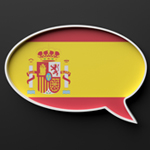
This course is aimed at students who wish to improve their communication skills in Spanish. To achieve this goal, new grammatical structures will be introduced and others that students have already acquired will be strengthened. This course requires students to have passed level A. Thus, students will acquire greater confidence and independence enabling them to express themselves in Spanish with some fluency. We will focus on past tenses for the linguistic content.

The course is aimed at students who wish to have a panoramic understanding of contemporary Spanish literature by studying the writers that have been honored by the prestigious Cervantes Literary Award. It explores the life and work of the most important authors of Spanish written literature in recent decades. The essential features of the authors will be studied individually and they shall be positioned within a specific period or movement. Within this framework, the world views of the social groups involved in Spanish and Latin American literature will become apparent. The course will finalize with the reading of fragments from the most representative work of each of the important authors.

This course is intended for students with an advanced level of Spanish who have specific medical/scientific background. Medical translation, like any specialized translation, requires specific definitions and terminology. Language as well as concepts are equally important. The course will have a theoretical and practical approach. On the one hand, students will learn the role of the medical translator, they will analyze specific English and Spanish medical texts and they will work with direct and indirect translations, that is from Spanish into English and from English into Spanish. Moreover, students will be introduced to interpretation and intercultural mediation in a medical context through different exercises.
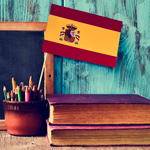
The course is aimed at students who wish to have a comprehensive and thorough knowledge of Spanish phonetics, and improve their pronunciation. It is structured from a practical point of view, always focusing on practical exercises within a theoretical context. It is important for students to hear and contrast first, and modify and improve later, through a detailed study of phonemes, syllables, stress and a general knowledge of the Spanish phonetic alphabet. This study will delve into phonetic transcription with exercises and explanations to train them in order to achieve an effective use of the language.

Gastronomy reflects the cultural identity of a country. This course is designed to be a cultural and gastronomic journey through Spain, in order to gain knowledge and understanding of the country’s culinary richness and variety, as well as the special importance of gastronomy in Spanish culture and society. Students will learn about the historical, cultural, and social aspects of Spain through gastronomy. During the course, students will read about, be informed on, discuss, be presented, and will write about Spanish gastronomy and its cultural impact. They will study the cultural diversity of the main Spanish communities, the main products of each region, its most outstanding dishes, history, regional characteristics, and of course, recipes.
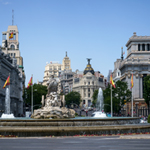
The course offers a historical and interdisciplinary overview of the most relevant characteristics and events of Spanish culture and contemporary civilization. It is important to learn and understand the past in order to fully understand Spanish history and society today. This course provides an interdisciplinary approach that integrates the social, political, artistic, religious, ethnographic, anthropological, and economic perspectives that will help students understand in greater depth the reality and challenges of the country throughout different historical periods.

The term Al-Andalus refers to the territory of the Iberian Peninsula that was under Muslim domain between 711-1492. This long tenure of nearly 800 years has confirmed a legacy that now forms a significant part of the hallmarks of Spanish culture. In this sense, the course is organized to include several subjects on the study of Muslim monuments such as the origin of Mudejar and Mozarabic art. The transformation of the city, houses and gardens, the greatest example of which is the Alhambra in Granada. The development of agriculture and the arrival of new foods that are the origin of modern Spanish cuisine. We will also emphasize on the linguistic influence, music, festivities and traditions that make Spain such a unique country.

This is a practical course with the main objective of students developing and acquiring a methodology in translation and improving their language skills in Spanish. This is a dynamic and interactive course in which students are required to translate general and specific texts using different methods and strategies. Furthermore, students will also be initiated in the field of interpretation, public speaking, consecutive interpreting with note-taking and simultaneous interpretation. Students registered in this course are required to have a high intermediate/advanced level of Spanish (B according to CEFR).
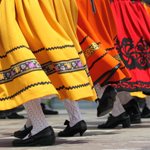
This course aims to improve students’ oral and conversational skills. The course provides both linguistic and cultural knowledge. Units follow a linguistic progress for this which goes from the verb to be; ser / estar / haber; prepositions; reflexive verbs; direct and indirect pronouns; irregular verbs; past perfect / imperfect / indefinite; simple future; the conditional tense and the present subjunctive. These grammar points are studied in a context that is related to cultural aspects in Spain. Thus students will see topics such as; the parts of the house, giving directions, using public transportation, food, fashion, a doctor’s visit, cultural festivals: Fallas, bullfighting, Christmas and Easter, among others.
Professional Spanish
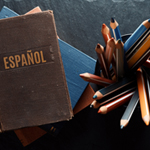
This course is aimed at students who are interested in improving their language skills in a business scenario. The course, its activities, assignments and assessments have a communicative approach, and real-life and business situations are proposed. It focuses mainly on the acquisition of company-specific terminology, oral expression and communication, written expression in letters, resumes and other specialized documents, without forgetting the essential elements involved for a correct cultural and linguistic expression.

This course has been designed for students who are studying a major in biology, medicine, nursing, pharmacy, health science or psychology and have a B2 Level of Spanish. The course consists of different activities and tasks with a communicative approach and real-life and health-related situations. Special attention will be placed on acquiring terminology in this context, on oral expression in specific situations and on writing, without forgetting cultural elements. Students will tour a hospital and a psychological and psychiatric center, and will learn about the different departments, and the most common health practices that take place in visits with patients, in operating rooms, in the laboratory, and other departments.

The Spanish for Mental Health Professionals course is designed for those students who wish to acquire specific language skills to work in specialized mental health centers with Spanish-speaking patients. This course focuses on developing the linguistic and cultural competencies necessary to communicate effectively and understand the needs of Spanish-speaking mental health clients.

The Spanish for Veterinarians course is designed for those students who wish to acquire specific language skills to work in veterinary clinical settings with Spanish speakers. This course focuses on developing the linguistic and cultural competencies necessary to communicate effectively and understand the needs of Spanish-speaking clients in the animal care setting.
Courses in English

The history of Spain will be examined in an international context, particularly from a European and North American perspective. Students will explore Spanish culture in its various representations, examining cultural expressions in terms of its universal perception. Course topics will be linked to political and cultural issues of the contemporary identity of Spain.

This course will introduce students to the history and religions of medieval Spain. To this end, a series of texts from Muslim, Christian and Jewish sources will be analyzed that highlight the uniqueness of medieval Iberia and its influence on medieval Europe. The course presents the distinctive culture of these three civilizations along with an analysis of their unprecedented intense multicultural and multi-confessional interaction and mutual influence characteristic of medieval Iberia. The terms used to describe this cultural diversity (coexistence versus intolerance, cultural interaction versus isolation) will be examined. This course has an extra fee of 180€.

In this course students will analyze how companies should consider the ethical framework in which they want to develop their activities. How should their actions fit into that ethical framework and how, on that basis, they should act accordingly. We will question practices carried out, we will analyze cases that can be both example and anti-example, that can provide us with clear reference points for a course that is designed to be very participatory and, in which we must all contribute to build our shared knowledge. This course has an extra fee of 180€

The subject International Marketing is an introductory course into the foundations of global marketing. We will review the main concepts of marketing with an international focus, explain global strategies, analyse the environment and the international scene, study consumer behaviours, demand, market segmentation and positioning, etc. This course has an extra fee of 180€

This course intends to be an overview of the image of Spain in British-American literature since the 19th century to the 21st. in Travel Books, Essays, Tales, Poems, Novels, Drama, Books of History and so on, with special attention to a historical and cultural point of view.

This course provides students with a fundamental understanding of the international dimensions of trade and finance. The concepts, approaches, and technology to support financial management in a global business environment will be discussed. Throughout the semester, focus will be on the European perspective with special emphasis on the specifics for Spain.
This course has an extra fee of 180€.
Internships

This course offers students the opportunity to obtain a Spanish cultural, economic and linguistic practical immersion experience in a company or in another institution. The course consists of two parts: one is an internship and the other part is made up of workshops, seminars and supervision meetings carried out at the institute.

